|
Scholars of Chronicles normally emphasise that the Chronicler used typical words and phrases in those parts that belong to his Sondergut. Amongst these are phrases like ‘to humble yourself’, ‘to seek Yahweh’, and ‘not to forsake Yahweh’. The writer’s typical changes to the burial notices of the royal narratives also belong in this category. Something which is often overlooked, however, is that many of these features already occur in the narrative about Huldah’s oracle (2 Chr 34:19–28) which was taken over with only minor changes from the Deuteronomistic version (2 Ki 22:11–20). My paper investigates whether or not the Huldah oracle could have served as theological paradigm according to which the Chronicler developed his own unique style. If so, the investigation will prompt me to revisit the issue of how continuity and discontinuity, with the older historiographical tradition, characterise the identity negotiation process that we witness in this literature.
Scholars of Chronicles normally emphasise that the Chronicler used typical words and phrases in those parts that belong to his Sondergut.1
These Sondergut usages, of typical words and phrases, are then considered to be very important in identifying the Chronicler’s unique theology or
ideology (McKenzie 2004:47–52; Dirksen 2005:14–20; Klein 2006:44–48; Gabriel 1990; Ruffing 1992). Amongst these are significant phrases
like ‘to humble oneself’, ‘to seek Yahweh’, and ‘not to forsake Yahweh’. These phrases, which occur at important theological
junctions, particularly in the royal narratives about Judah’s kings in 2 Chronicles, give expression to the ideal religious and cultic attitude which is
presented by the writer as the hallmark of Israel’s identity (Japhet 2009:194–208).2 Through the usage of this terminology, in the royal
narratives, the Chronicler was constructing the ideal prototype of religiosity towards which he wanted to encourage ‘All-Israel’ in his own days in
the late Persian period Yehud.Another feature which is emphasised by scholars of Chronicles, in their description of the Chronicler’s unique style and ideology, is the writer’s
typical changes to the burial notices of the royal narratives (Jonker 2012b).3 The Chronicler clearly made slight changes to many of the royal burial
notices in order to ‘upgrade’ or ‘downgrade’ the profile of the particular king. This tendency also feeds into the Chronicler’s
overall project of formulating those political and religious prototypes that could encourage the leaders and population of Yehud towards accepting a
specific Yahwistic identity. It is certainly important to study the occurrence of these words and phrases within the context of the Chronicler’s Sondergut over-against the
Deuteronomistic History. However, something which is often not discussed in scholarship on Chronicles is that many of these features are not all invented by
the Chronicler. Some features which are often depicted as ‘typically Chronistic’ are taken from other existing traditions. What is often neglected
in scholarship on Chronicles is that, although the Chronicler employs these words and phrases in his own special way, he does so in continuity with some earlier
historical and theological traditions. One good example of this tendency is the narrative about Huldah’s oracle (2 Chr 34:19–28) which was taken over with only minor changes from the
Deuteronomistic version (2 Ki 22:11–20). Some features that are normally seen as typical of Chronicles and that occur in this narrative were taken over
from the version in Kings where these features already occur. The phrases ‘to humble oneself’, ‘to seek Yahweh’, and ‘not to
forsake Yahweh’, as well as the notice about King Josiah’s peaceful burial, already occur in the Deuteronomistic version. The present contribution will therefore investigate this conspicuous feature of the narrative about Huldah’s oracle.4 The investigation takes
place within the broader framework of some recent studies which reminded scholars of the continuities between Chronicles and other preceding traditions, amidst
all the discontinuities which often form the focus of our studies (Jonker 2012a; Ben Zvi 2009:86).5 The present study will test the hypothesis that the
Huldah oracle served as a theological paradigm according to which the Chronicler developed his own unique style, particularly in the Sondergut passages.
The study will also attempt to show how the utilisation of the Huldah oracle contributed to the Chronicler’s project of negotiating identity in the late Persian context. The study starts on a descriptive level by exploring the terminological links between typical Chronistic expressions (which occur in the Sondergut
passages) and terms used in the Huldah oracle.6 Thereafter, some studies will be introduced which discuss the role of Huldah’s oracle in both
the Deuteronomistic and Chronicler’s versions. The study will then proceed to test the hypothesis formulated above, and in the last section I will revisit
my understanding of the identity negotiation processes in Chronicles in the light of the insights gained from studying the Huldah oracle.
|
Some typical chronistic expressions
|
|
In another contribution I have given a summary of typical Chronistic expressions which particularly occur in the Chronicler’s Sondergut, and which contribute significantly towards the characterisation of Judah’s kings as good or bad kings (Jonker 2012b). Three of those terms also occur in the narrative about Huldah’s oracle. For the sake of my present argument it is important to first provide a more general discussion on the incidence of these concepts.The first term is the Hebrew verb  [‘to seek or enquire’] which occurs in the imperative form in 2 Chronicles 34:21b || 2
Kings 22:13b, as well as in an infinitive form in 2 Chronicles 34:26a || 2 Kings 22:18a. The verb occurs in total 164 times in the Old Testament, with a high
incidence in the books of Deuteronomomy (14), Samuel-Kings (16), Isaiah (14), Jeremiah (9), Ezekiel (16), Psalms (24), and particularly in Chronicles. A total
of 41 occurrences are in Chronicles, that is 25% of all occurrences. Of the 41 times the verb is used in Chronicles, 35 of those are in Sondergut passages
(which represents more than 85% of the occurrences in the book). In the majority of the Sondergut occurrences ‘Yahweh’ or ‘God (of the
father[s])’ is the object of the verb. In three cases other deities are the object. This shows that the verb [‘to seek or enquire’] which occurs in the imperative form in 2 Chronicles 34:21b || 2
Kings 22:13b, as well as in an infinitive form in 2 Chronicles 34:26a || 2 Kings 22:18a. The verb occurs in total 164 times in the Old Testament, with a high
incidence in the books of Deuteronomomy (14), Samuel-Kings (16), Isaiah (14), Jeremiah (9), Ezekiel (16), Psalms (24), and particularly in Chronicles. A total
of 41 occurrences are in Chronicles, that is 25% of all occurrences. Of the 41 times the verb is used in Chronicles, 35 of those are in Sondergut passages
(which represents more than 85% of the occurrences in the book). In the majority of the Sondergut occurrences ‘Yahweh’ or ‘God (of the
father[s])’ is the object of the verb. In three cases other deities are the object. This shows that the verb  [which is in some cases
substituted with, or parallel to, the synonym [which is in some cases
substituted with, or parallel to, the synonym  ] is mainly used in literary contexts where dedication and loyalty to the deity is the theme.
Dirksen remarks about the usage of ] is mainly used in literary contexts where dedication and loyalty to the deity is the theme.
Dirksen remarks about the usage of  , after studying the Chronicler’s specific use of the term, that ‘[f]or the Chronicler,
‘to seek Yahweh’ [ark or altar] is pre-eminently the term for a fundamental attitude of obedience and trust toward Yahweh’ (Dirksen 2005:23).
In the majority of cases the expression is used as positive evaluation of a king who sought Yahweh. , after studying the Chronicler’s specific use of the term, that ‘[f]or the Chronicler,
‘to seek Yahweh’ [ark or altar] is pre-eminently the term for a fundamental attitude of obedience and trust toward Yahweh’ (Dirksen 2005:23).
In the majority of cases the expression is used as positive evaluation of a king who sought Yahweh. The next prominent term, which also occurs in the Huldah oracle in 2 Chronicles 34:25a || 2 Kings 22:17a, is the verb  [‘to leave or forsake’]. It occurs in total 214 times in the Old Testament with a high incidence in Samuel-Kings (29), Isaiah (23), Jeremiah (25), Psalms (22) and Chronicles (28% – 13% of all occurrences). A total of 21 of the 28 occurrences in Chronicles (i.e. 75% of those in Chronicles) belong to the writer’s Sondergut. Except in five cases (1 Chr 16:37; 2 Chr 11:14; 24:25; 28:14; 32:31) all the Sondergut occurrences have Yahweh as object, and are used negatively as an expression of religious apostasy. [‘to leave or forsake’]. It occurs in total 214 times in the Old Testament with a high incidence in Samuel-Kings (29), Isaiah (23), Jeremiah (25), Psalms (22) and Chronicles (28% – 13% of all occurrences). A total of 21 of the 28 occurrences in Chronicles (i.e. 75% of those in Chronicles) belong to the writer’s Sondergut. Except in five cases (1 Chr 16:37; 2 Chr 11:14; 24:25; 28:14; 32:31) all the Sondergut occurrences have Yahweh as object, and are used negatively as an expression of religious apostasy. The third term is the verb  [‘to humble oneself’, often together with [‘to humble oneself’, often together with  ] which occurs in 2
Chronicles 34:27b || ] which occurs in 2
Chronicles 34:27b || 2 Kings 22:19b, with an additional insertion in the same verse in Chronicles (27c). It occurs 36 times in the Old Testament, with five occurrences in Samuel-Kings and 19 in Chronicles (i.e. over 52% of the total). Of these, 17 (over 89%) occur in the Chronicler’s Sondergut. The verb is mainly used in the Niph’al to express the positive attitude of a king towards Yahweh. It is therefore mainly associated with the ‘good’ kings (David, Solomon, Rehoboam, Abijah, Hezekiah, Josiah), or with good conduct of a ‘bad’ king (such as Manasseh). Alternatively, the misconduct of ‘bad’ kings (such as Amon and Zedekiah) is expressed with this verb in negated form. The statistics above (particularly the high incidence of these verbs in the Chronicler’s Sondergut) show that these verbs, together with some others, play an important role in the Chronicler’s literary construction. Together they serve to convey the strong conviction that Yahweh should be sought, that He should not be forsaken, and that one should humble oneself before this God. This is the basic religious inclination which is put forward by the Chronicler as a prototype of religious leadership in All-Israel. Another peculiarity of Chronicles which could prove to be significant for our study of Huldah’s oracle is the tendency, of the Chronicler, to alter several of the royal burial notices in his own version compared to those included in Kings. An overview of the burial notices shows that the Chronicler used it as an additional tool to enhance or downplay some of the kings’ profiles. Those kings who received a darker treatment by the Chronicler are: • David (whose burial notice in the City of David is completely omitted)
• Jehoram (who was buried in the City of David, but not in the tombs of the kings)
• Ahaziah (who was demoted from the City of David to no mention of a burial place, although a positive comment is added that he was
nevertheless buried on account of his father’s righteousness)
• Joash (who was buried in the City of David, but not in the tombs of the kings)
• Uzziah (who was demoted from the City of David to the kings’ burial field because of the king’s skin disease)
• Ahaz (who was buried in the City of David, but not in the tombs of the kings)
• Amon (who was demoted from a tomb in the garden of Uzzah to no burial place mentioned). Those who receive a more favourable burial place are: • Asa (whose tomb in the City of David was filled with spices etc.)
• Hezekiah (promoted from no burial place to the tombs of the sons of David)
• Manasseh (promoted from a burial place in the garden to a place in the house)
• Josiah (promoted by great mourning after his death). Surprisingly, the Chronicler also indicates that Jehoiada who reigned with Joash, when the latter was still young, received a burial in the City of David. Josiah’s death notice deserves special attention. Whereas 2 Kings 23:30 mentions that he was buried in his own tomb in Jerusalem, the Chronicler’s version indicates in 2 Chronicles 35:24–25 that he was buried in the tombs of his fathers. Additional positive information is provided in the following words: So he died, and was buried in one of the tombs of his fathers. And all Judah and Jerusalem mourned for Josiah. Jeremiah also lamented for Josiah. And to this day all the singing men and the singing women speak of Josiah in their lamentations. They made it a custom in Israel; and indeed they are written in the Laments. (2 Chr 35:24–25 NKJV) This remark will be discussed in full when we study the Huldah oracle’s prophecy about Josiah’s death in 2 Chronicles 34:28a–b || 2 Kings 22:20a–b.
|
The narrative about Hulda’s oracle
|
|
As was indicated above, the Chronicler took over the narrative about Huldah’s oracle in a fairly unchanged form from his Vorlage in 2 Kings
22:11–20. Only a few minor textual changes were made and the structure of the whole narrative, as well as the different levels of direct speech, was kept
intact. However, the position of the Huldah oracle, in the overall construction of Josiah’s history, is significantly different in the two versions
(Jonker 2003).7 Whereas the oracle leads over in 2 Kings 22 to the king and people concluding a covenant and, as a result, performing various cultic
reformation measures, the Chronicler has moved the cultic reformations to another position, at the beginning of his Josiah account. The result is that the Huldah
oracle leads over in 2 Chronicles 34 to the covenant of the king and people, and particularly then to the celebration of the Passover. This change, in the
macrostructure of the Josiah narrative, is quite significant (Jonker 2003),8 but does not concern us here where the focus is more on the micro level,
specifically on the usage of certain terminology in the Huldah oracle story.In both versions the Huldah oracle follows after the finding of the Book of the Law (of the Lord) during the restoration of the Temple in Jerusalem. In
both versions it is reported that Shaphan the scribe went to inform King Josiah about the find, and that he read to the king from the book. After the king
has heard the content of the (book of the) Torah, he tore his clothes as an act of penitence. In his motivation to his officials about why they should go
and ‘enquire from Yahweh’ he indicates that he understands the content of the book as an accusation against his ancestors who did not obey the
words of the book. He acknowledges that the wrath of the Lord over them will be great. Within this context the officials are then sent to Hulda, the prophetess. Many scholars have been puzzled by the content of this text (in its very similar forms in Kings and Chronicles). Römer, for example, expresses his
amazement that the king sent a delegation to Hulda even though the king has already understood the content of the book (Römer 2009:181). Grohmann asks
why the king did not send his delegation to Jeremiah who was actively working during the time of Josiah (Grohmann 2003:213; Handy 1994:40–53).9
Because the narrative is so problematic, it comes as no surprise that it has generated much scholarly discussion in the distant and recent past, with
contributions ranging from scholars who are interested in the literary-historical features of the Deuteronomistic history (Grohmann 2003; Gerstenberger 2006;
Römer 2009; Priest 1980; Deurloo 1993; Handy 1994; Glatt-Gilad 1996),10 to scholars offering feministic readings of the Huldah oracle (Weems 2003;
Wacker 1990). The fullest discussion of the text in a commentary can still be found in Sarah Japhet’s work (1993; cf. Knoppers 2003; Dirksen 2005; Klein 2006).
11 She emphasises two important points in her discussion: firstly, about the words of Josiah’s commission, and secondly, about the
Deuteronomistic character of the Hulda prophecy. With reference to the first aspect she explains that the Qal plural imperative of  : : ‘[i]nquiring of the Lord’ by means of a prophet was originally the seeking of guidance, enabling the inquirer to take the right action in matters
personal or public. ... The same verbal root came to denote any ‘seeking of the Lord’, and in Chronicles it is used with the broadest connotations,
expressing any form of religious loyalty and piety. (Japhet 1993:1032) She continues then to make an important observation about the construction being used here: However, its use with the preposition beʿad (‘for, on behalf of’) is extremely rare and attested only in Jer.
21.2. By contrast, beʿad is the common preposition attached to verbs of supplication, denoting the role of the prophet:
praying on behalf of his people (I Sam. 12.19; I Kings 19.4, very often in Jeremiah, etc.). The idiom dārāš
beʿad expresses the prophet’s double role, and uses the conventional dārāš to denote ‘pray
for’. The scene described in Jer. 21.2 from the days of Zedekiah shares this new coinage. Josiah sends the delegation not merely ‘to inquire’
but also to ‘pray’, that the imminent ‘wrath of the Lord’ be averted. (Japhet 1993:1032)12 The second aspect Japhet (1993) emphasises (with reference to Moshe Weinfeld’s study) is the fact that: [t]he prophecy of Huldah is a characteristic Deuteronomistic speech, full of Deuteronomistic expressions ..., its main point being an outright rejection of Josiah’s plea. His recognition of the book’s authority and claim for obedience, and his whole-hearted humility before the Lord, are met with the answer that the verdict is final and cannot be changed. .... As the prophecy stands, Huldah does not answer Josiah’s address: she does not tell him what to do, and does not demand anything from him. (p. 1033) Sarah Japhet (1993) then continues to reflect on the unusual reaction contained in this text: The unusual reaction may be compared to the many inquiries by the kings and people of Judah of Jeremiah, who always responded with some pointer to the correct path that should be followed, whether or not the people were willing to take it (cf. Jer. 37.7–10; 38.2; 42.1–22, etc.). (p. 1033) Although many aspects of Japhet’s views can and should be followed up in studies of the Huldah oracle (in both its version in the Hebrew Bible) I would like to focus on one element, namely the link with Jeremiah, which has surfaced in the above discussion. Many of the more recent studies (of the Kings version of the Huldah oracle) to which we now turn, also concentrate on this aspect. Rüterswörden (1995) already suggested that: Hulda redet wie Jeremia; .... Doch der Jeremia des Jeremiabuches in seiner jetzigen Gestalt ist ein Prophet auf dem Boden des Deuteronomiums; und dieser Boden ist auch für Hulda nachzuweisen. (p. 241) He therefore emphasises that the same close connection between prophetism and the Torah proclamation can be found with Jeremiah and Hulda. According to him, this is particularly true in the Deuteronomistic redaction of Jeremiah, such as in the citations put in the mouth of Jeremiah by the redactor in Jeremiah 17:22 and 34:14. Rüterswörden (1995) continues: Dies gilt in anderer Weise auch von Hulda; in beiden Sprüchen bezieht sie sich explizit auf das Buch, das im Tempel gefunden wurde, das Deuteronomium. So können deuteronomistische Redaktoren eine Prophetin nur reden lassen, wenn sie eine Prophetin im Sinne des Deuteronomiums ist. Sie kann nur so über das Deuteronomium reden, weil sie selbst durch das Deuteronomium legitimiert ist. (p. 240–1) Grohmann (2003) also emphasises the close connection with Jeremiah, but refers to another text which she indicates stands parallel to Huldah’s oracle: Zwischen der Sprache von Huldas Prophezeiung und Jeremias Sprache gibt es zahlreiche Parallelen, z.B. in der ‘Gegengeschichte Jer 36’. Huldas
Weissagung ist geradezu Zusammenfassung, eine Konzentration der Botschaft Jeremias. (p. 213)13 In the most recent study on this topic Thomas Römer also emphasises the close connection between the narrative on Huldah’s oracle and Jeremiah. He indicates that King Josiah’s reaction to the reading of the Book of the Law (according to 2 Ki 22:13) is strongly reminiscent of words found in Jeremiah 36:7 and 11:7–8. But he continues: ‘In der Tat bestätigt Hulda in ausführlicherer Weise die Worte Josias; und auch sie tut dies mit den Worten Jeremias’ (Römer 2009:182). He refers in this context to the similarities between 2 Kings 22:16 and Jeremiah 7:20, as well as between 2 Kings 22:17 and Jeremiah 1:16. He also elaborates on the relationship between the Huldah oracle and Jeremiah 36: In Zusammenhang met Jer 36 gelesen, wird durch den Tod Josias  ein Gegensatz zu dem Unheilsorakel gegen Jojakim geschaffen,
dass diesem wegen seines Verhalten ein Gegensatz zu dem Unheilsorakel gegen Jojakim geschaffen,
dass diesem wegen seines Verhalten  einen Tod ohne Begräbnis ankündet (36,30–31). Vielleicht kann man den Tod ‘in
Frieden’ des Josia noch weiter interpretieren als ein friedvolles Verlöschen des Königtums. Nachdem der König im Tempel Platz geschaffen
hat für die Verlesung des Buches, wird der König, der traditionelle Mittler zwischen Gott und Mensch entbehrlich, da die Mediation des göttlichen
Willens von nun an durch das Buch zugänglich ist. Der König ist tot, es lebe das Buch. (Römer 2009:182–3) einen Tod ohne Begräbnis ankündet (36,30–31). Vielleicht kann man den Tod ‘in
Frieden’ des Josia noch weiter interpretieren als ein friedvolles Verlöschen des Königtums. Nachdem der König im Tempel Platz geschaffen
hat für die Verlesung des Buches, wird der König, der traditionelle Mittler zwischen Gott und Mensch entbehrlich, da die Mediation des göttlichen
Willens von nun an durch das Buch zugänglich ist. Der König ist tot, es lebe das Buch. (Römer 2009:182–3) Although the Huldah oracle and Jeremiah 36 do not share the same fate for the respective kings, both of these texts stand parallel in terms of their subordination of prophets under the prophetic book. Gerstenberger therefore considers Hulda amongst the ‘Schriftgelehrten’: ‘Bei Hulda handelt es sich um den speziellen Fall, dass über eine schon vorliegende, schriftliche Form des Weisung Jahwes befunden werden muss. Eine Tora über die Tora ist gefragt’ (Gerstenberger 2006:279). With the completion of this overview of recent studies on the Huldah oracle (in Kings) we can now return to our original enquiry, namely, how the narrative about this oracle functions in the book of Chronicles and how it contributes to the Chronicler’s own rhetorical fibre. The views expressed in the mentioned studies all refer to the functioning of Huldah’s oracle in the Deuteronomistic version in 2 Kings 22. One should now proceed to ask what implications these views hold for our study of Chronicles.
|
A paradigm for the Chronicler’s Sondergut?
|
|
We have seen above that the Chronicler takes over the Deuteronomistic version of this narrative with only a few minor changes. The duplication of this narrative with its included oracle is therefore not in itself particularly remarkable. In this way the Chronicler shows, such as in the greatest part of his literary work, respect for the transmitted historiographical tradition. However, his continuity with the traditions of the past does not preclude the writer from using these transmitted traditions for his own purpose. I would like to contend that this is also the case with regard to the Huldah oracle. Four points should be emphasised in this context, which will subsequently be discussed:• introducing the prophet Jeremiah
• creating parallels with Jeremiah texts
• categorising Josiah as a good king
• creating a terminological junction between the Deuteronomistic and Chronicler’s versions
Introducing the prophet Jeremiah
The Huldah oracle provided the Chronicler with a useful way of introducing the prophet Jeremiah into his account. It is remarkable that the prophet Jeremiah
does not occur at all in the Deuteronomistic History. The only presence of this prophet outside of the book of Jeremiah is in Chronicles!14 At the
end of the Chronicler’s Josiah narrative (the same narrative in which the Huldah oracle was included) it is mentioned that Jeremiah wrote a lament on the
king’s death after the latter was killed in a battle with king Neco of Egypt (2 Chr 35:25), an aspect which will be taken up in a further point below.
However, of great significance in Chronicles is, that the exile is indicated as a fulfillment of a prophecy of Jeremiah (2 Chr 36:21), as well as the proclamation
by the Persian emperor Cyrus which started the return from exile (2 Chr 36:22). In these instances the Chronicler therefore deviates from his Deuteronomistic
Vorlage which does not contain any explicit reference to Jeremiah. In another contribution I have reflected on the question, why did the Chronicler
emphasise Jeremiah so much in the climax of his version of Judah’s history? I think the answer lies in the Chronicler’s strong tendency to merge different traditions in his version of the past. The Book of Jeremiah provided the
Chronicler with a useful way of merging the Priestly and Deuteronomistic traditions on this point. The prominent occurrence of
 (‘desolation’) in Jeremiah gave the Chronicler the bridge to get to the P-tradition in
Leviticus 26 in order to render the exile as Sabbath. But Jeremiah, with its prominent Deuteronomistic content, provided the possibility of appending his other
prominent Vorlage, the Deuteronomistic History. (Jonker 2008:292) (‘desolation’) in Jeremiah gave the Chronicler the bridge to get to the P-tradition in
Leviticus 26 in order to render the exile as Sabbath. But Jeremiah, with its prominent Deuteronomistic content, provided the possibility of appending his other
prominent Vorlage, the Deuteronomistic History. (Jonker 2008:292) Without going into the detail of that argument now the point is emphasised here that the inclusion of the Huldah oracle, from his Vorlage, helped the Chronicler prepare the way for the conclusion to his literary work only two chapters later.
Creating parallels with Jeremiah texts
Another aspect which would have been very useful for the Chronicler is the close parallel of the narrative about Huldah’s oracle with certain texts from Jeremiah, with Jeremiah 36 being a very prominent case. We have seen above that various scholars have indicated the literary connection between the narrative about Huldah’s oracle (where a prophetess confirms the content of the Torah) and the narrative about Jeremiah’s scroll (being written by Baruch, burned by Jehoiakim, and rewritten and appended with similar words). It is well-known that the Chronicler introduced numerous formerly unknown prophetic figures into his narratives, a fact which prompted scholars to revisit the thesis that the phenomenon of prophecy started disappearing shortly after the exile. It seems, however, that a consensus is slowly growing amongst scholars that prophecy probably did not end with the exile or early Second Temple period. It rather seems that prophecy was transformed and that it had another function in society to what it had before. In this regard the view of Gerstenberger is significant (2004:364). After his analysis of the prophetic occurrences in Chronicles, he comes to the conclusion that, according to the Chronicler’s view, the Mosaic Torah and prophetic utterances were qualitatively the same. He states the following: Das Prophetische sollte weder formal noch inhaltlich, noch qualitativ von den Tora-Vorschriften Jahwes abgesetzt werden. Oder: Die Tora, die ja Mitteilung des Gotteswillens durch Mose, den Gottesmann, war, unterschied sich höchstens situativ von der aktuellen Prophetenrede. Qualitativ waren Mose-Tora und aktuelle Prophetenrede einander gleich: Sie waren autoritatives Jahwe-Wort. (Gerstenberger 2004:364) If this view of Gerstenberger’s is correct, then the narrative about Huldah’s oracle would have provided the Chronicler an excellent opportunity to
make this point. Many scholars have indicated that Hulda does nothing else in her oracle than confirm the king’s understanding, which he has already gained
from reading the Book of the Torah. Although the function of this narrative, in the Deuteronomistic version in 2 Kings 22–23, was probably to contribute to
the discussion about who was seen as a true prophet and who not, that specific nuance is no longer present in the Chronicler’s version as a result of a
change to the death and burial notice (which will be discussed below).15 The narrative and oracle therefore no longer serve the purpose of defining who
is a true prophet, but rather serve to elevate the position of the Torah over-against prophecy. The Torah (which was probably understood in the Chronicler’s
days as the whole Torah, and not just the laws contained in the core part of the book Deuteronomy) becomes a revelatory medium of the Word of Yahweh alongside
those prophets who confirm, and thereby acknowledge, the authority of the written religious traditions.
Categorising Josiah as a good king
We have already referred to the changes the Chronicler made to Josiah’s burial notice. Whereas 2 Kings 23:30 mentions that he was buried in his own tomb in Jerusalem, the Chronicler’s version indicates in 2 Chronicles 35:24–25 that he was buried in the tombs of his fathers. Additional positive information is provided in the following words: So he died, and was buried in one of the tombs of his fathers. And all Judah and Jerusalem mourned for Josiah. Jeremiah also lamented for Josiah. And to this day all the singing men and the singing women speak of Josiah in their lamentations. They made it a custom in Israel; and indeed they are written in the Laments. (2 Chr 35:24–25 NKJV) With these changes the Chronicler irrevocably categorises Josiah as a good king, but he also brings the end of the narrative in line with Huldah’s oracle concerning the king’s plight. The ‘upgrading’ of Josiah’s burial place, as well as the laments sung by Jeremiah and the people after the king’s death, indicate that he was indeed gathered with his fathers ‘in peace’ (34:28). There is no longer a discrepancy between Huldah’s oracle and the negative shadow cast by the Chronicler’s version of Josiah’s death; these additional elements of the death notice (compared to the Kings version) rather cooperate to emphasise the positive role of King Josiah (which particularly becomes clear in the very elaborate Passover account of Chronicles).
Creating a terminological junction between the Deuteronomistic and Chronicler’s versions
Lastly, we come to the issue that has been raised at the start of this study, namely the peculiarity that some of the ‘typically Chronistic’ terms
also occur in the narrative about Huldah’s oracle in Kings. Can these terms really be described as ‘typically Chronistic’ if they already
occurred in the Chronicler’s Vorlage? We have indicated above that the terms ‘to seek or enquire of Yahweh’, ‘to humble
oneself’ and ‘to leave or forsake’ occur overwhelmingly in Sondergut passages in Chronicles (35 out of 41 occurrences), and can therefore
be seen as programmatic in the Chronicler’s construction. All of these do occur in Samuel-Kings (which served as Vorlage for the Chronicler), but
with a rather low incidence. However, one of the junctions between these traditions is the Huldah oracle. The Josiah narrative is very important for both the
Deuteronomist and the Chronicler. It has been indicated in many studies on the Deuteronomistic History that in it Josiah is idealised (Jonker 2002).16
Josiah is also very central in the Chronicler’s construction, although he rather becomes instrumentalised than idealised (Jonker 2003:86).17 The
Chronicler uses Josiah as an instrument to put emphasis on the celebration of the Passover, a cultic event which has become very important in the
Chronicler’s time. In both of these accounts Huldah’s oracle functions pivotally. But it seems that the Chronicler then used the language of this
oracle and spread it over his own work to such an extent that it becomes a stylistic trait of the new work. The Chronicler picked up on the Deuteronomistic
terminology, but then developed it to its full consequences in his own construction of the past. In this sense, one could contend that the narrative about
Huldah’s oracle became programmatic for the Chronicler’s typical style.At this point we may proceed to reflect on the relationship between this creative way of using the Deuteronomistic Vorlage and the socio-historical circumstances of the Chronicler.
|
Constructing a prototype for All-Israel’s identity negotiation
|
|
Elsewhere I have explained that the book of Chronicles should be viewed as a participant in the process of identity negotiation in the late Persian period Yehud (Jonker 2009). The text does not reflect static identities, but rather actively contributes towards the process of negotiating a new understanding of ‘All-Israel’ in the late Persian period. How does the Chronicler’s usage of the Huldah oracle contribute towards this process?Our analysis of the functioning of the narrative about Huldah’s oracle in Chronicles provides insight into how this process of identity negotiation took place: • Firstly, it took place in continuity with the transmitted historiographical tradition. The Chronicler indicated, through the inclusion of this part of the Deuteronomistic account into his own version, that the new literary construction builds upon those perspectives and convictions that have been given expression in the earlier reconstruction of Israel’s past. The community for whom the new work was constructed in the Persian period was therefore projected as a continuation of the pre-exilic community. The exile did not sever the link with the past. • Secondly, by applying the terminology of the transmitted material in a unique way in his own construction, the Chronicler emphasised what religious inclination was needed in his own day. Although the older tradition already indicated the importance of ‘seeking Yahweh’ and ‘humbling oneself’ before him and not ‘forsaking’ him, the Chronicler amplified these values by applying them to a much broader scope in his construction. Whereas these values were used in the Deuteronomistic version to provide a measuring rod against which the kings of the past could be judged, the Chronicler applied these values to his own community. If the general scholarly view is correct, that Chronicles was addressed to the cultic community in Jerusalem in the late Persian period Yehud, then the Chronicler utilised the transmitted material to formulate a prototype of good religious conduct for his own day. The religious community in Yehud is encouraged to seek Yahweh and rely on him, and not to forsake him in their existence as part of the Persian empire. • Thirdly (and most importantly), the specific usage of the transmitted material in the Chronicler’s literary construction also shows that the Chronicler wanted to emphasise the role of Torah in the new community. Whereas the finding of the Book of the Law functions in the Deuteronomistic version as legitimisation for the theological perspective, which is taken on the pre-exilic past, and the Torah now becomes Yahweh’s revelatory medium for a new phase in Israel’s existence. The post-exilic age necessitated a theological re-orientation for the community in Jerusalem. We know from other studies (such as Pentateuch research) that this was the age in which the Torah (understood as the Pentateuch, with Deuteronomy loosened from its original position as introduction to the former prophets and re-anchored as the closing of the Pentateuch) became the constitution for the reconstruction of the religious community in Yehud. In this respect Huldah’s oracle was a useful text for the Chronicler with which he could amplify the role of Torah, and in expressing it so, he could contribute to formulating the prototype towards which All-Israel was encouraged.
I certainly did not solve all the burning questions with regard to Huldah’s oracle in this contribution. And I did not even touch on the intriguing fact that it is a female prophet who plays such an important role in both the Deuteronomistic and Chronicler’s versions. However, this study confirms that the Chronicler’s usage of his Vorlage certainly was no haphazard cut-and-paste exercise. It was, rather, a careful and deliberate process of establishing continuity with the past, but simultaneously it also encourages the present community to live with religious integrity in a new age.
Competing interests
The author declares that he has not financial or personal relationship(s) which may have inappropriately influenced him in writing this paper.
Ben Zvi, E., 2009, ‘Are there any bridges out there? How wide was the conceptual gap between the Deuteronomistic history and Chronicles?’,
in G.N. Knoppers & K. Ristau (eds.), Community identity in Judean historiography, pp. 59–86, Eisenbrauns, Winona Lake.Deurloo, K.A., 1993, ‘Chulda’s Profetie. Een Collage van Woorden uit het Boek Jeremia (2 Koningen 22:15–20)’,
Amsterdamse Cahiers 12, 106–115. Dirksen, P.B., 2005, 1 Chronicles. HCOT, Peeters, Leuven. Gabriel, I., 1990, Friede über Israel. Eine Untersuchung zur Friedenstheologie in Chronik I 1– II 36. Verlag Österr,
Kath, Bibelwerk, Klosterneuburg. Gerstenberger, E.S., 2004, ‘Prophetie in den Chronikbüchern: Jahwes Wort in zweierlei Gestalt?’, in F. Hartenstein et al. (eds.),
Schriftprophetie. FS für Jörg Jeremias zum 65. Geburtstag, pp. 351–367, Neukirchener Verlag, Neukirchen-Vluyn. Gerstenberger, E.S., 2006, ‘Hulda unter den Schriftgelehrten?: Tora als Mitte von Prophetie’, in I. Riedel-Spangenberger &
E. Zenger (eds.), ‘Gott bin ich, kein Mann’: Beiträge zur Hermeneutik der biblischen Gottesrede; Festschrift für
Helen Schüngel-Straumann zum 65. Geburtstag, pp. 271–280, Schöningh, Paderborn/München/Wien/Zürich. Glatt-Gilad, D.A., 1996, ‘The Role of Huldah’s Prophecy in the Chronicler’s Portrayal of Josiah’s Reform’,
Biblica 77(1), 16–31. Grohmann, M., 2003, ‘Hulda, die Prophetin: (2 Kön 22, 14–20)’, Communio Viatorum 45(3), 209–216. Handy, L.K., 1994, ‘The Role of Huldah in Josiah’s Cult Reform’, ZAW 106(1), 40–53. Japhet, S., 1993, I & II Chronicles. OTL, SCM Press, London. Japhet, S., 2009, The Ideology of the Book of Chronicles and Its Place in Biblical Thought, Eisenbrauns, Winona Lake. Jonker, L.C., 2002, ‘Completing the temple with the celebration of Josiah’s Passover?’, OTE 15(2), 381–397. Jonker, L.C., 2003, Josiah in the Chronicler’s Mirror: Late Stages of the Josiah Reception in II Chr 34f., Gütersloher Verlag,
Gütersloh. Jonker, L.C., 2008, ‘The Chronicler and the Prophets: Who were his Authoritative Sources?’, SJOT 22(2), 275–295. Jonker, L.C., 2009, ‘Textual identities in the Books of Chronicles: The case of Jehoram’s history’, in G.N. Knoppers & K. Ristau (eds.),
Community Identity in Judean Historiography: Biblical and Comparative Perspectives, pp. 197–217, Eisenbrauns, Winona Lake. Jonker, L.C., 2011, ‘“Lewend en kragtig”? Die hermeneutiese dinamika en implikasies van (her)interpretasie in die Ou Testament’,
NGTT 52(1&2), 128–147. Jonker, L.C., in press, 2012a, ‘Was the Chronicler more deuteronomic than the Deuteronomist? Explorations into the Chronicler’s relationship with
Deuteronomic legal traditions’. Jonker, L.C., in press 2012b, ‘What Do the “Good” and the “Bad” Kings Have in Common? Genre and Terminological Patterns in the
Chronicler’s Royal Narratives’. Klein, R.W., 2006, I Chronicles, Fortress, Minneapolis. Knoppers, G.N., I Chronicles 1–9, Doubleday, New York. McKenzie, S.L., 2004, 1–2 Chronicles. Abingdon, Nashville. Priest, J., 1980, ‘Huldah’s Oracle’, VT 30(3), 366–368. Römer, T., 2009, ‘Von Maulwürfen und verhinderten Propheten: Einige Anmerkungen zum prophetischen Buch’, Communio Viatorum
51(2), 173–183. Ruffing, A., 1992, Jahwekrieg als Weltmetapher. Studien zu Jahwekriegstexten des chronistischen Sondergutes, Verlag Kath. Bibelwerk, Stuttgart. Rüterswörden, U., 1995, ‘Die Prophetin Hulda’, in M. Weippert & S. Timm (eds.), Meilenstein: Festgabe für
Herbert Donner zum 16. Februar 1995, pp. 234–242, Harrassowitz, Wiesbaden. Wacker, M.-T., 1990, ‘2. Könige 22, 8.9a.10b.11–20: Hulda – Prophetin vor dem Ende’, in E.R. Schmidt, M. Korenhof &
R. Jost (eds.), Feministisch gelesen, pp. 91–99, Kreuz Verlag, Stuttgart. Weems, R.J., 2003, ‘Huldah, the prophet: Reading a (Deuteronomistic) Woman’s Identity’, in B.A. Strawn & N.R. Bowen (eds.), A God so
near: Essays on Old Testament Theology in Honor of Patrick D. Miller, pp. 321–339, Eisenbrauns, Winona Lake.
1. It is well-accepted in commentaries on Chronicles that the author(s) of Chronicles should be sought amongst the literati in Second Temple Jerusalem. Although it cannot be determined whether the book stems from a single author or a collective. In light of the fact that it is highly unlikely in this time period that the author(s) would have been female, the masculine singular pronoun is used here for practical reasons to refer to the Chronicler. See for example McKenzie (2004:56–58), Dirksen (2005:21–29) and Klein (2006:2–6).2. See the discussion in Japhet (2009:194–208). 3. For an elaborate discussion of this aspect, including references to other scholars’ viewpoints, see the paper I delivered at the SBL International Meeting in London in 2011: Jonker (to be published 2012b). 4. This paper was first presented at the annual meeting of the Old Testament Society of South Africa held at the University of the Western Cape between 07 and 09 September 2011. 5. See my recent paper delivered at ProPent 2011 titled: ‘Was the Chronicler more deuteronomic than the Deuteronomist? Explorations into the Chronicler’s relationship with Deuteronomic legal traditions’ (to be published 2012a). See also Ben Zvi (2009). Although Ben Zvi does not deny or ignore the clear differences in style and structure between the Deuteronomistic History and Chronicles, he comes to the following conclusion at the end of his investigation: ‘All in all, this study demonstrates that the analysis of continuity and discontinuity between the Deuteronomistic History and Chronicles can profit much from taking into account that which goes beyond the surface differences between the two works. The categorical claims about their differences must not be rejected but set in proportion to their similarities’ (2009:86). 6. Many of these terms occur very prominently in the Chronicler’s own passages, and they play pivotal roles in the theological statements that are made in those passages. They are therefore regarded as typical of the Chronicler’s style. However, some of these terms also occur in the Huldah oracle which was taken over fairly unchanged from the Deuteronomistic history. This fact should be taken into account when dealing with the uniqueness of the Chronicler’s own materials, and how they relate to the earlier traditions. The present article wants to bring more sophistication into the assessment of the Chronicler’s own material. 7. For an elaborate discussion of this feature of the Josiah account, as well as for a diagram which explains the position of the Huldah oracle in the macro structure, see Jonker (2003, particularly ch. 3, and 2011). 8. In Jonker (2003) I discuss in full this macro-structural feature. 9. Handy (1994:40–53) asks an even more pertinent question, namely why did Josiah consult a prophet at all? He comes to the following conclusion: ‘[T]he character of Huldah in the literary narrative of Josiah’s call to reform the cult of Judah conforms to the plot narratives found in Mesopotamian texts also dealing with cult reforms. She plays the part of the double-check on the will of the deity. Cult reforms were serious business and a single directive deriving from any god was simply not enough to cause a good ruler to begin changing the religious realm of the nation’ (1994:52). This observation may be particularly true for the usage of the Huldah oracle in the Deuteronomistic version of the text. However, in Chronicles the oracle does not precede the cultic reforms as occurs in 2 Kings 22 (see discussion above), but it rather motivates the celebration of the Passover. Furthermore, in a study of Chronicles one will have to correlate this observation of Landy’s with circumstances during the Persian period. 10. Cf. the following articles that appeared since 2000: Grohmann (2003); Gerstenberger (2006); Römer (2009). The following older studies have also been dedicated to Huldah: Priest (1980); Deurloo (1993); Handy (1995); Glatt-Gilad (1996). 11. The major critical commentaries of recent years (such as those written by Knoppers (2003), Dirksen (2005) and Klein (2006) are only available on 1 Chronicles. Because the text under discussion occurs in 2 Chronicles one must still rely on the earlier critical commentary of Japhet. 12. Cf. also Rüterswörden (1995:238–239). Japhet also notes two interesting changes in the Chronicler’s presentation: ‘According to 2 Kings 22.13, Josiah seeks the Lord ‘for me, and for the people, and for all Judah’ – a somewhat conflated reading in which the last phrase (if original) may be seen as apposition: ‘for the people, that is, for all Judah’. The Chronicler rephrases this address to become more comprehensive, and to include the two major components of Israel: ‘for me, and for those who are left in Israel and Judah’....Secondly, the more neutral phrasing ‘our fathers have not obeyed the words of this book, to do according to all that is written concerning us’ is rephrased with a more explicit referent: ‘our fathers have not kept the word of the Lord, to do according to all that is written in this book’ (Japhet 1993:1032). 13. In support of her statement Grohmann refers to Deurloo (1993). 14. Why the Deuteronomistic History does not mention the prophet Jeremiah explicitly (the question which has already been raised by Römer, Grohmann and others) remains a mystery which cannot be solved here. One would have expected the Deuteronomists to make reference to him seeing that they also found his prophetic material valuable, and contributed significantly towards the final form of the prophetic book of Jeremiah. 15. Scholars normally indicate that Huldah’s oracle, about king Josiah who would be gathered with his fathers ‘in peace’, did not come true as a result of his unexpected death in battle against the Egyptian king Neco. The discrepancy which is certainly prominent in the Deuteronomistic version is removed in the Chronicler’s version with additional information on the king’s death and burial. 16. For a summary of studies that give this interpretation of the Deuteronomistic Josiah account, see Jonker (2002). 17. Cf. Jonker (2003:86): ‘King Josiah is still being thought of as a good king – one of the best they had. However, their rewriting of this king’s history within the new context assigned a new function to this king. He is no longer viewed, as was the case in their older tradition, as the one epitomising and legitimising the Deuteronomistic theological tradition. Rather, he now serves the role of accentuating the cultic tradition (the Passover, in particular). It is not kingship that is at stake in the new situation, but cult. Who they were no longer primarily depended on having a Davidic king, but on the presentation and observance of their cultic traditions.’
|